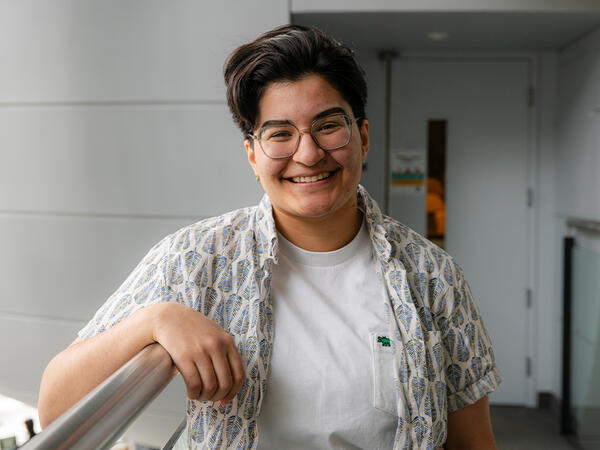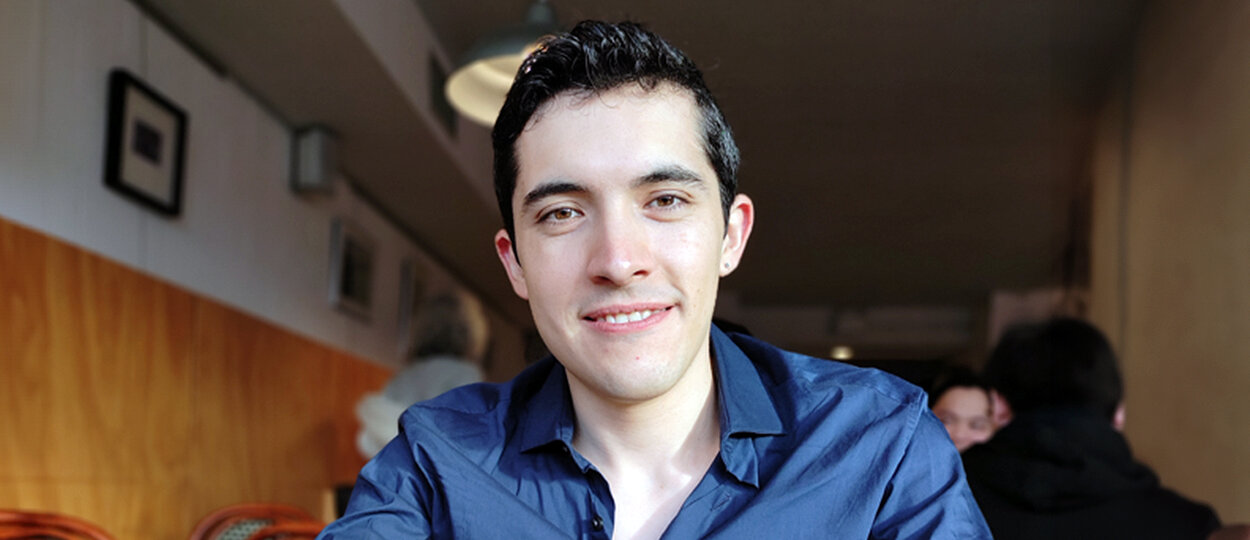What is your academic background and why is your current area of research important?
I completed my MD degree in 2019 at the National Autonomous University of Mexico. During my last year of undergraduate studies, I participated as a research assistant in a laboratory of nanomedicine studying nanoparticles for chronic wounds and cancer treatments. Later, I collaborated with a Canadian nanomedicine lab start-up to commercialize a nanoparticle-based wound dressing. Since then, nanomedicine captured my interest due to its interdisciplinary nature and versatile diagnostic and therapeutic applications.
Currently, my PhD project focuses on developing a treatment for pre-eclampsia using lipid nanoparticles for siRNA delivery to the placenta. Pre-eclampsia is a hypertensive disorder of pregnancy that affects 4-8% of pregnancies, and unfortunately, the only definitive treatment is pregnancy termination. The therapy I am proposing could be the first to address the root cause of pre-eclampsia and to prevent premature births and many other maternal-infant complications.
What led you to your current Supervisor’s research group?
When I decided to pursue graduate studies, I was looking for a lab where I could conduct nanomedicine research and apply my clinical perspective to solve problems. I also wanted to join a research group that was implementing emerging technologies in pharmaceutical sciences, such as nucleic acid therapies and tissue engineering. The Labouta Lab is focused on the development of innovative therapies for women’s and maternal-fetal diseases using nanoparticles and organ-on-a-chip-models. My interests and experience aligned seamlessly with the lab’s vision and research topics. Knowing that my research can make a meaningful impact on maternal health is fulfilling and motivating.
What are some of the challenges you had to overcome while pursuing your research?
Working with cutting-edge technologies, such as organs on chips and nanomedicine in pregnancy, is challenging as knowledge gaps are often wide and many techniques and protocols must be made from scratch. Learning the engineering aspects of these technologies has been demanding but encouraging at the same time, as integrating these skills into my expertise have enabled me to propose original ideas to solve complex problems.
How do you see your current research playing a role in your career?
This project has been nurturing from the start, as I have been able to consolidate and apply diverse experiences. For example, in parallel with the therapeutic scope of the project, I have been able to hone my project management skills and I foresee the translation of my research outputs into products that can be commercialized. I would like to make organ-on-a-chip and nanomedicine technologies more accessible to aid other researchers in their own pursuits.
What do you like to do when you are not working on research?
I enjoy participating in groups that bring together professionals from diverse backgrounds, entrepreneurs and industry leaders, such as Hacking Health and Symbiosis – a former project that I led. Currently, I participate in the planning committee of the Young Scientist Network – a trainee-led community under the Canadian Society of Pharmaceutical Sciences that aims to enhance pharmsci graduate trainees’ education and preparation for post-graduate careers.
In my spare time, I like to make art crafts and tools from common materials, particularly to upcycle disposable items. I also have a passion for biology that always drives me to keep learning about animal and plant species. I recently put these two interests together and I started making micro-terrariums and planters using disposable household materials.
How have you found life in Toronto?
The contrast of cultures and landscapes in Toronto is very interesting to me. I have learned a lot from people I have met from all around the globe. Having such cultural and geographical diversity balances out some struggles like the high living costs.
More News
Image

Faces of PharmSci: Mahya Rezaeifarimani
Supervised by Prof. Shirley Wu, PhD student Mahya Rezaeifarimani is developing smart nanoparticles to help make radiation therapy work better for brain tumours by targeting low-oxygen areas that often make treatment less effective.
Read More
Image

Dean Lisa Dolovich reappointed for second term
Professor Lisa Dolovich has been reappointed for a second term as Dean of the Leslie Dan Faculty of Pharmacy, University of Toronto, effective July 1, 2025, to December 30, 2030.
Read More
Image

Pharmacy Summer Camp gives high school students insight into pharmacy profession
A new summer camp based at the faculty will give high school students a range of experiences in pharmacy and pharmaceutical sciences.
Read More
